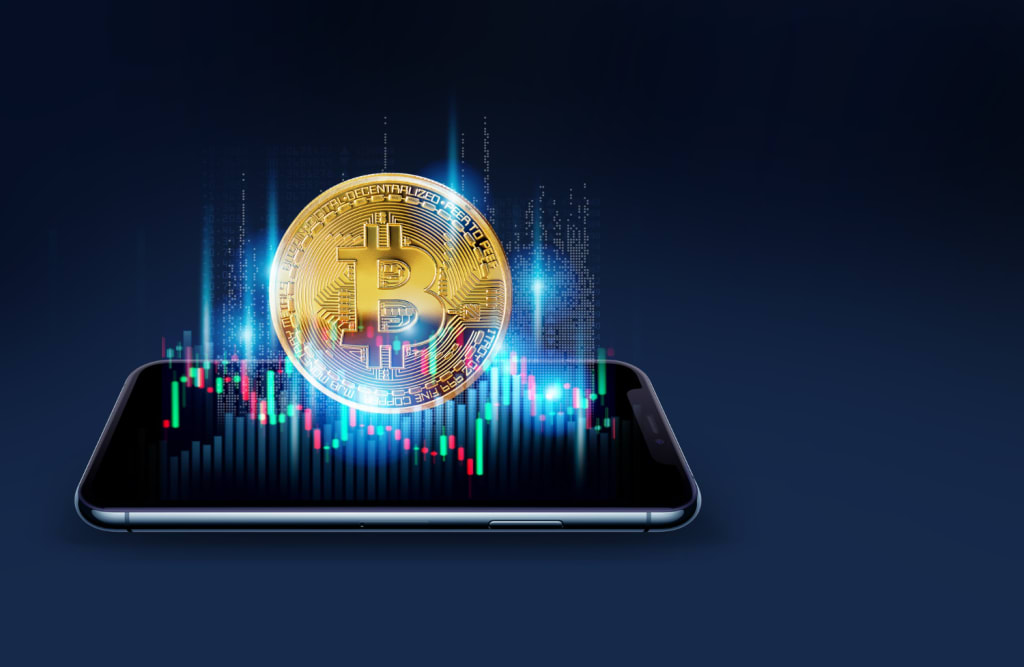Beyond just cryptocurrencies, digital money has changed how we live
Bitcoin market

In straightforward terms, advanced cash can be characterized as a type of money that utilizes PC organizations to make installments. Short-of-breath media inclusion represents things to come capability of digital currencies, for example, Bitcoin has brought in computerized cash a hotly debated issue.
One of the principal distinctions between advanced cash and actual money, like money, is that computerized cash misses the mark on distinguishing highlights that make it remarkable. Assuming you take a look at any certified receipts you could have sitting in your wallet or satchel, you will rapidly see that each note has a chronic number — a one-of-a-kind series of letters and numbers that denotes the uniqueness of that bill.
Be that as it may, as we probably are aware, advanced objects, like melodies or pictures, are effectively reproducible endlessly on the web. What keeps us from replicating the advanced cash in our ledgers with such ease?
The majority of us have been utilizing advanced cash from the beginning. Not the advanced idea of digital forms of money separates them from computerized cash, yet rather the way in which they guarantee the responsibility for property that marks them as groundbreaking.
The issues of computerized cash and who possesses it are probably going to increment in intricacy, with sweeping ramifications in daily existence. The Counter Money Research facility, another drive situated in the Division of Humanities at the College of Victoria, was laid out to investigate these inquiries.
Our exploration there archives the present and fate of cash and its impacts on how we live.
Mastercards
Business banks and installment organizations, for example, those that utilize Mastercards, defend the uniqueness of our computerized dollars. These foundations ensure that we don't circumvent spending a similar computerized dollar at least a time or two. When we spend computerized cash, banks deduct it from our records so it can't be spent once more.
The main broadly utilized type of computerized cash was Mastercards with attractive stripes. The utilization of an attractive stripe encoded with distinguishing data was first presented very nearly a long time back. This type of advanced cash went into boundless use during the 1970s and 1980s, prodded by the creation of electronic retail location terminals associated with PC networks oversaw by any semblance of Visa and Mastercard.
Yet, how does this computerized cash work precisely? While paying for something in a store, the purchaser taps their Mastercard on the computerized terminal, and the dealer's bank advances the subtleties of the Visa to the organization. This Visa network demands approval of the installment from the cardholder's bank. The cardholder's bank approves the cardholder's subtleties and how much accessible credit is and afterward endorses the buy.
Countless of these advanced cash exchanges happen consistently. Albeit this exchange includes a purchaser, a dealer, two banks, and a charge card organization, no actual cash is really traded. Rather, a progression of messages is sent bringing about an obligation caused by the customer to their bank and credit in the trader's ledger.
In this sense, the computerized cash utilized here is certainly not a material mode of trade, like bills or coins, yet rather a unit of record passage. This computerized cash is a credit or obligation in the computerized records kept up by the banks of both the vendor and the buyer. Different types of advanced cash, for example, check card exchanges or e-moves work in basically the same manner.
No focal power
Cryptographic forms of money, for example, Bitcoin contrast with the types of computerized cash that are now regularly utilized by shoppers all over the planet. The primary distinction is that when installments are made, a blockchain replaces the connection between the two banks.
A blockchain is a rundown of records containing exchange information that is held in a circulated record, which is a computerized record of the record books for Bitcoin exchanges.
Record duplicates are put away and kept up with in large numbers of PCs that partake in the digital money organization.
Computerized cash represents the issue of twofold spending. How might one guarantee that similar cash in a singular's record isn't spent at least a time or two? Blockchain innovation takes care of this issue without a response from a focal power.
In normally utilized types of advanced cash, the PC servers that work with the Mastercard network forestall twofold spending. These servers guarantee that a cardholder can't utilize precisely the same computerized dollars utilized for purchasing food in the store to likewise purchase drinks all around at the bar.
In the Bitcoin organization, any endeavor to spend a similar Bitcoin two times would be negated on the whole by every one of the PCs in the organization, which would forestall any endeavor to spend similar computerized cash in two spots.
Advanced property
Maybe the genuine progressive improvement achieved by cryptographic forms of money isn't their computerized nature, yet rather that they empower the exchange of responsibility for resources without a plan of action to a unified power.
The limitless replicability is empowered by the web-tested thoughts of property that have long undergirded present-day development. The blockchain and conveyed records keep control of licensed innovation on the web. To be sure these parts of digital currency might lastingly affect how we live respectively, both on the internet and in genuine space.
How To Get Rich With Bitcoin Even If You Have No Clue About Technology
About the Creator
Sithum Chathumina
I am an experienced cryptocurrency trader and I am an expert in trading






Comments
There are no comments for this story
Be the first to respond and start the conversation.